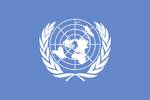
The UN Security Council voted unanimously today to extend the mandates of the United Nations peacekeeping missions in Eritrea and Ethiopia, the Democratic Republic of the Congo (DRC) and Liberia, which would have otherwise expired at the end of this month.
Council members adopted resolutions extending the UN Mission in Eritrea and Ethiopia (UNMEE), the UN Organization Mission in the DRC (known by its French acronym MONUC), and the UN Mission in Liberia (UNMIL). UNMEE has been extended until 31 January 2007, MONUC’s authority continues through 15 February 2007 and the mandate of UNMIL is now extended until 31 March 2007.
Read the full press release here.
The three peacekeeping contexts face very different challenges, yet all are equally central to building environments conducive to reconstruction and regional stability. All three contexts form each a unique epicenter of far-reaching regional tensions and cross-border interference that have caused much suffering and little political gain for the last 10 - 15 years.
How Charles Taylor's Liberia and Congo's conflict destabilized their respective regions and claimed millions of lives are well known. Less covered in the popular press is the degree to which Eritrea and Ethiopia have competed for dominant influence in both the Sudanese conflict (North & South, Darfur, and more recently the East), and in Somalia. There, Eritrea reportedly backs the Union of Islamic Courts (UIC) while Ethiopia supports the feeble regime of President Ghedi, a product of western-financed mediations in Nairobi over the last 8 years. That Ghedi has been calling for a return of UN peacekeepers further allies him to the detested international community.
Congo will surely need the peacekeepers through 2007 to help control the probable violence that will follow the 29 October electoral showdown between presidential hopefuls Kabila and Bemba. International Crisis Group just released a report about the 'state of the state' in the buildup to this important date in Congolese history.
"Because both Kabila and Bemba will be tempted to use violence should they lose the second round, and the former in particular is very strong militarily, the Congolese government and the international community must move quickly to make secure the run-off as well as the provincial assembly elections on 29 October. Militias also threaten stability elsewhere in the country, notably in North Kivu and Ituri, but the capital is likely to be the most sensitive location again."
Read more from the ICG report here.
No comments:
Post a Comment